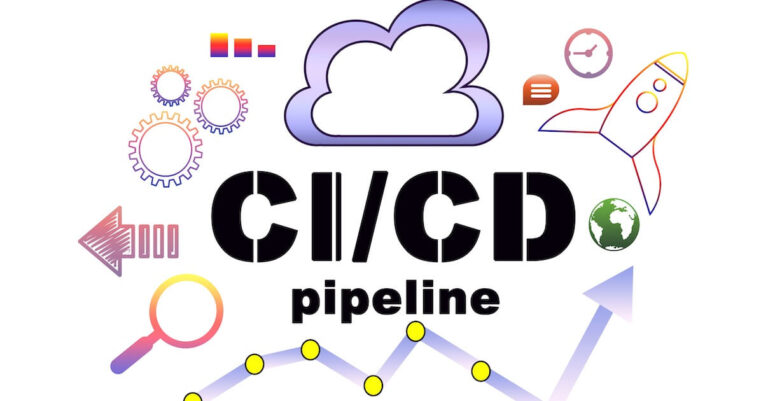Companies are communicating with their customers with software delivered as a service or application. Software and apps have transformed every part of a business’s value chain, be it supply chain, communication, or operations. Software and apps no longer merely support a business; it helps generate new revenues and unlock higher profits. Therefore, when you innovate with your applications, the sooner it gets into the competitive market, the better the company can thrive. Being fast is everything in today’s competitive market, and it could be a difference between success and failure.
Therefore, every company must continuously work on its go-to-market strategy and innovate to build and deliver software.
What is DevOps?
DevOps emerged as a better approach to develop and deliver software products and services to customers faster. It helps companies improve their go-to-market for rapid software delivery and incident management. DevOps model includes people, processes, and technology that allow the team to better respond to customer requirements, increase confidence in the apps they build, achieve business goals, and compete more effectively in the market.
How Does DevOps Work?
DevOps is the amalgamation of development and operations teams that work together across the entire software life cycle. Traditionally, development and operations teams worked in isolated environments. The isolation of teams and competing values created an environment rife with miscommunication, poor alignment, and production delays.
DevOps comes as a response to the “us vs. them” and applies continuous automation cycles throughout Software Delivery Lifecycle (SDLC) processes i.e Continuous Integration, Continuous Delivery, Continuous Testing and Continuous Operations.
How Does DevOps Accelerate Business Innovation?
When your users demand more sophisticated software products and expect you to deliver them faster than ever, your business innovation practices need a 360-degree transformation. DevOps that improve collaboration and productivity are helping to achieve business innovation goals. Cloud transformation is dependent on DevOps as it accelerates the development and deployment of software release. There are several advantages a company gets with the DevOps approach of app development, but here are the top five that are crucial for any business to be innovative, available and scalable. And those are as follows:
1. Accelerate Time To Market:
DevOps accelerate time to market and increase business revenue. It brings together IT and development teams to work together; therefore, it reduces time to build, test and deploy services or features. DevOps approach enables businesses to present new features or improve the existing features quickly and make them available to users faster.
2. Adapting To The Market And Competition:
To win in a competitive environment, you need to deliver quality products continuously. Having a great business idea and an initial build would not help grab market share. You need a better strategy and a process that DevOps provides. DevOps ensures new code is delivered quickly and reliably. Further, it enables teams to build a scalable, resilient application environment while giving users a killer experience. This way, it doesn’t just help acquire the market but also thrive in a competitive market by growing user base and revenue.
3. Maintaining System Stability And Reliability:
DevOps promotes continuous testing or automated testing. Automated testing support engineers to perform more accurate test results, provide immediate feedback on the build, and monitor complete processes. When the team looks for results, the DevOps approach ensures time savings for speeding up the availability and the whole work associated with result analysis on each CI/CT cycle. The team easily maintains system stability and reliability of software products while ensuring availability and high performance.
4. Improving The Meantime To Recovery:
The longer MTTR would be, the heavier the financial impact a company has to face. DevOps has a solution for MTTR that stands for mean time to recovery. DevOps speed up the process of repair, response, and recovery when a service goes down. It supports mission-critical system monitoring, thus helping get insights in real-time to degraded performance and total outages due to incidents and failures. The approach in DevOps not just helps collect accurate information but also automates the incident-management system. This way, it is possible to mitigate the issue quickly and ultimately lower MTTR.
5. Improved Customer Experience Capabilities:
DevOps practices also focus on the unique aspects of customer experience software. DevOps speed up the development of customer experience as well as the quality of the software. DevOps professionals keep a tab on the customer’s perspective, design sprints accordingly and test it with the customer’s goal in mind. The team not just innovates new features quickly but defines and improves the whole customer journey for omnichannel.
Final Thoughts
A right DevOps strategy and its successful implementation help you streamline your end-to-end delivery pipeline.
- It provides speed to companies to build and release advanced features or products to meet the expectations of its customers in terms of speed and quality.
- The sooner the product gets into the market, the faster companies can receive feedback and start learning again for improvement.
- It brings companies the ability to make changes based on feedback to improve the product and maintain a competitive advantage.
DevOps has many technical and non-technical benefits for a company. Right from business operation to business efficiency, employee collaboration & communication to customer experiences, DevOps benefits a company in all aspects with unified communications services.




